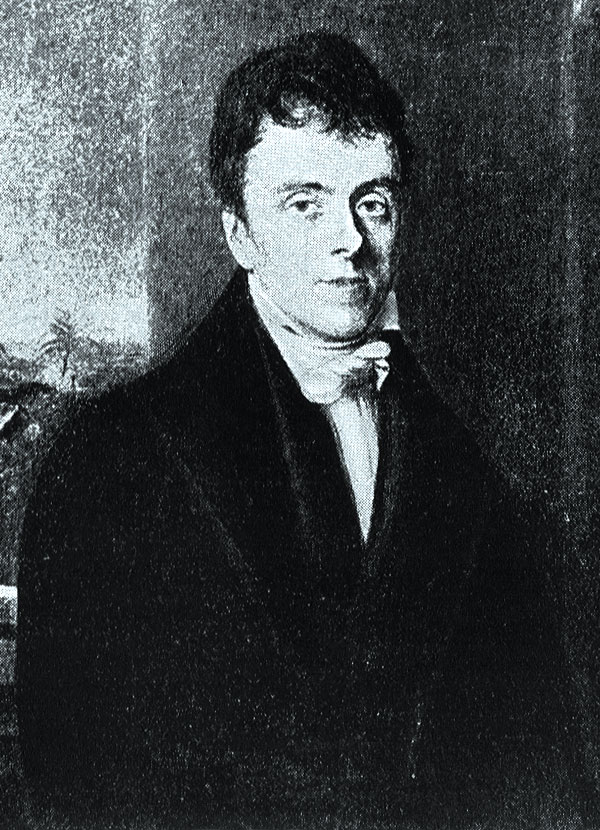Conversation with a moonshee - 1806

Henry Martyn translated the Bible into Urdu, Persians, and Arabic.
Introduction
Henry Martyn described himself as a selfish boy. In a fit of rage he once flung a knife at a friend who barely eluded it. His attitude began to change after his father died unexpectedly (his mother had died years before). Unable to study, Martyn began to read the Bible. Before long he prayed God for pardon. He had planned to go into law, but now felt constrained to preach the gospel. As he had sisters to support, he accepted a chaplaincy with the East India Company despite indications he had tuberculosis.
The following year, twenty-five-year-old Martyn became chaplain to some British troops and began a mission work at Dinapur, India. He had a good ear for languages and translated the New Testament and Anglican prayer book into Urdu, becoming one of the first Protestants to make a real effort to bring Muslims to salvation. He also translated the New Testament and Psalms into Persian and made an Arabic translation. After terrible suffering, he died in 1812, just thirty-one years old.
Today’s quote is from Martyn’s journal on this day 31 October 1806, while he was still working among Muslims in India.
Quote
“My Moonshee [Indian language teacher] said, ‘How can you prove this book (the gospel), to be the word of God?’ I took him to walk with me on the shore that we might discuss the matter, and the result of our conversation was that I discovered that the Mussulmen allow the gospel to be in general the command of God, though the words of it are not His as the words of the Koran are, and contend that the actual words of God given to Jesus were burnt by the Jews; that they also admit the New Testament to have been in force till the coming of Mohammed. When I quoted some passages which proved the Christian dispensation to be the final one, he allowed it to be inconsistent with the divinity of the Koran, but said, ‘Then those words of the gospel must be false.’ The man argued and asked his questions seemingly in earnest, and another new impression was left upon my mind, namely, that these men are not fools and that all ingenuity and clearness of reasoning are not confined to England and Europe. I seem to feel that these descendants of Ham are as dear to God as the haughty sons of Japheth; I feel, too, more at home with the Scriptures than ever; everything I see gives light to, and receives it from, the Scriptures. I seem transported back to the ancient times of the Israelites and the Apostles. My spirit felt composed after the dispute by simply looking to God as one who had engaged to support His own cause; and I saw it to be my part to pursue my way through the wilderness of this world, looking only to that redemption which daily draweth nigh. How should this consideration quell the tumult of anger and impatience when I cannot convince men ‘the government is on His shoulders?’ Jesus is able to bear the weight of it; therefore we need not be oppressed with care or fear, but a missionary is apt to fancy himself an Atlas.”
Rhea, Sarah J. Life of Henry Martyn, Missionary to India and Persia. Chicago: Women’s Presbyterian Board of Foreign Missions of the Northwest, 1888.





